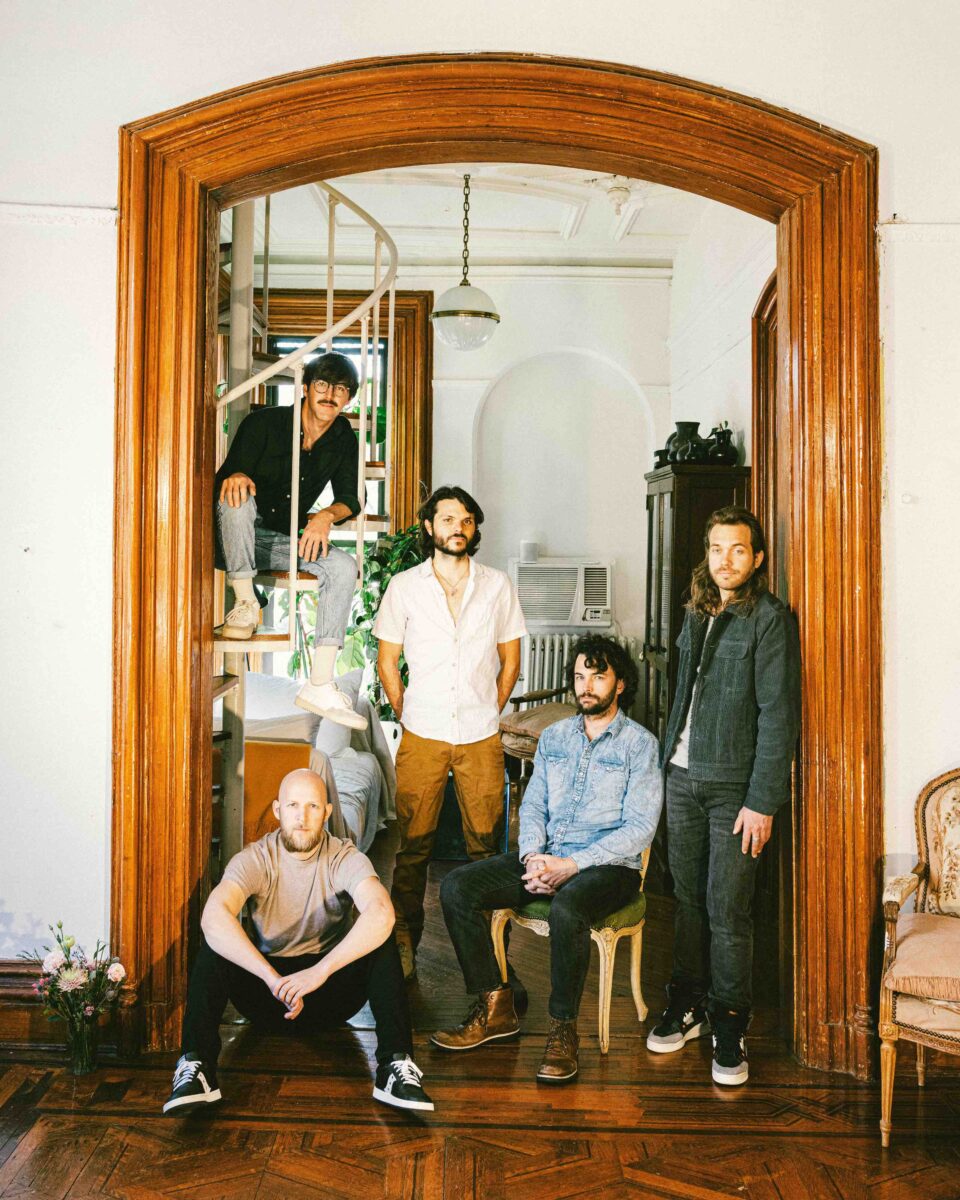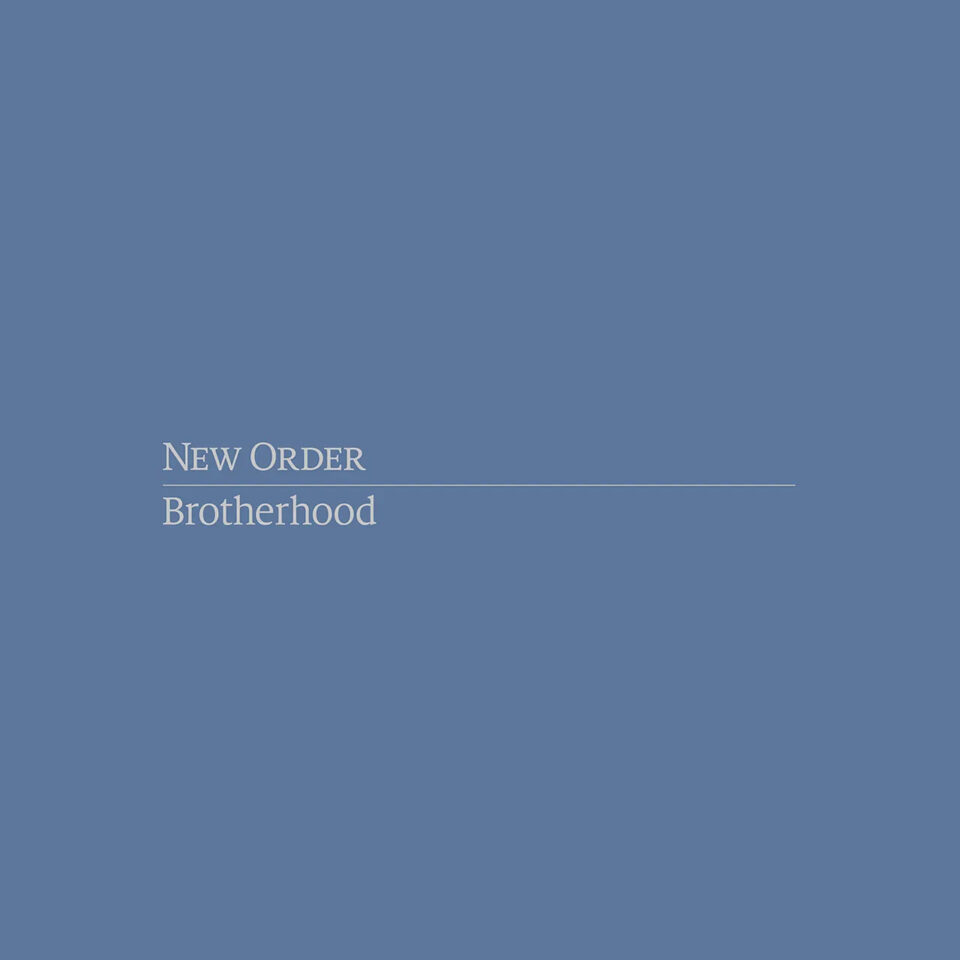America loves it some labels. The calculus of our understanding must be as simple as possible. Try filling out a job application or tax form without defining yourself several times over so that in some cubicle far away, you can be properly designated. Watch CNN during an election: White suburban straight women vote in this way and no other. The country’s ill-conceived plan to deconstruct the ingredients of the melting pot is part of what’s tearing the fabric of the nation apart. Just ask a Republican about pronouns and watch World War III begin.
Nowhere is this more prevalent culturally than in the arts. Everything needs to be placed into a tidy little box—otherwise our collective minds will explode upon being challenged to find a Venn diagram’s gray center. In music, if you only listen to lo-fi prog-ska, there’s a sense of ownership over the genre, and defying that ownership can become troublesome. But for the Connecticut band Goose (see, why did I have to assign them a region?), musically confronting classification has seen them rise to a new level—rarefied air for a group that’s been labeled a “jam band.”
Fresh off the release of their fourth studio album—the inspired Dripfield—the quintet of Peter Anspach, Ben Atkind, Rick Mitarotonda, Jeff Arevalo, and Trevor Weekz find themselves enjoying the type of burgeoning success that often escapes their genus, mostly because labels can become pejoratives within the musical literati. Anspach and Mitarotonda sat down with me digitally to discuss Goose’s ascending flight.
Growing up in Connecticut, did you feel New York’s shadow calling you in the distance?
Rick Mitarotonda: Where we grew up, the predominant demographic is people who are wealthy and working in Manhattan. It’s like an hour shot into the city. And that was amazing to grow up with—as soon as I came of age I was going to jazz shows in the city and stuff like that.
Peter Anspach: We took class field trips to the city. I was a big Yankees fan and we’d try to go to Broadway shows—or any shows—that were happening in New York. It was a really amazing thing.
“Every interaction we have with our fans, you know—the music is so special to them. And in the end, it’s gonna end up being way more special to them than it is to us. So as long as we keep that in mind, we’re going to be staying cool.”
— Peter Anspach
So how surreal was it to, x amount of years later, do the Dripfield album release at Radio City?
Rick: Surreal’s the word for it. There was a fair amount of intention behind it, obviously—we knew we had the shows booked. And we were looking for a date around that time to do the album drop, and it kind of all just made sense. It didn’t hit me until we were there.
As you break through that plateau, how do you keep from becoming assholes?
Peter: Every interaction we have with our fans, you know—the music is so special to them. And in the end, it’s gonna end up being way more special to them than it is to us. So as long as we keep that in mind, we’re going to be staying cool.
Rick: It’s something I think about a lot. Even in high school, I was super shy—I was a really shy pothead. And the pot just enhanced the shyness. And I think people mistook it for arrogance, and the last thing I was feeling was arrogant. I worry about being overstimulated and overwhelmed; I can get into modes where I’m more outgoing, but often I’m pretty introverted, especially after or before a show. So I worry that it doesn’t portray the sentiment that I actually feel inside toward the people who are choosing to come to our shows and spend their hard-earned money.

The other side of that, you’re being given opportunities to work with people whose work you appreciate—are there lessons you can take from them?
Rick: It’s been a trip meeting all these people. I’ve met most of my heroes in the last two months. And it’s really strange. It definitely triggers the imposter syndrome. But it’s also just super inspiring to be meeting these people and picking up little nuggets here and there about their experiences. I don’t want to come in hot like, “Hey, give me the 10 things that you would impart as wisdom.” It’s wild, I just hope we can keep our heads about us and keep working.
“The moments of people connecting with each other [through our music] and getting someone through something—that’s when it kind of puts to rest the question of whether or not it’s worth doing it.”
— Rick Mitarotonda
Peter alluded to the jam-band community, and I think the one thing that defines any band that might fit within that umbrella is there’s very much an attachment to community. I was wondering if that’s a responsibility that you enjoy.
Peter: It definitely stems from the fans coming to see multiple shows—they end up knowing each other, they create relationships, sharing rides, saving spots. It ends up being an advantageous thing to develop friendships with people that you otherwise wouldn’t have known. Knowing people in different cities makes it easier to see a lot of different shows, which is a lot of the mentality behind the community. I love the idea that music can form friendships. That some of these bonds have grown just because of this band is pretty remarkable. That’s one of the things I’m most proud of.
Rick: I would agree with that. That whole thing is such a mind trip, but the moments of people connecting with each other and getting someone through something—that’s when it kind of puts to rest the question of whether or not it’s worth doing it.
Culturally, we love to put things in lanes. Is the jam band label frustrating? Or is it something you’ve just embraced?
Rick: I’m glad you’re bringing this up, because I think there’s some clarification needed. My main gripe with the term “jam band” is that it’s demeaning in a way that’s inappropriate for the bands themselves. It’s really challenging to improvise in the way that jam bands do. And if it wasn’t so challenging, a lot more people would do it. A lot of bands we’ve grown up loving in that scene get a bad rap. It’s really amazing what these bands are able to do—the ones that have really made a solid footing are all unique. Umphrey’s McGee has a strong metal prog-rock thing going on, but they jam incredibly. Widespread Panic has this strong Southern rock thing, but it mixes into this psychedelic jam improvisational thing. Phish pulls from everywhere—there’s so much Zappa there, but it’s a million other things. To me, the classical influence in their music is the most incredible thing about them. The composition—it’s modern orchestral music in the context of a rock band. I don’t even know how they created some of the compositions that they have.
The other thing I’ve been questioning is the expectations that go along with being a jam band, because all the cool jam bands have broken expectations. Everyone was comparing [Phish] to The Dead—I see the comparison, but like, they’re also not The Dead and they’re not going to do everything that The Dead did.
“My main gripe with the term ‘jam band’ is that it’s demeaning in a way that’s inappropriate for the bands themselves. It’s really challenging to improvise in the way that jam bands do. And if it wasn’t so challenging, a lot more people would do it.”
— Rick Mitarotonda
To me, that’s what sells it; I’m so impressed with what bands can do when they’re out of the container of the studio.
Peter: I’ve seen the spectrum. I know people who, when they go to a concert, want to hold up their phone and record the three-minute hit. [And] there’s people that come see our shows, and we get into it and jam and they’re like, “I don’t know where you guys went, I was kind of lost, was that still this song?” Sometimes people want to know everything that’s happening at a concert—every song that’s being played, every moment of the music, they want to have it be more understood. Other people would rather just be along for the journey. And not one of them is wrong.
There’s a lot of ways to play live music, and the way we do is really fun for us as musicians. We get to play a unique, different show every night, we get to improvise. I feel very fortunate that we’re able to play shows like that, and I hope it’s appreciated by more people as we go along here. I hope people can appreciate that we have records where a song sounds one way and live it sounds a different way. In general, there are certain things about this band that don’t change—an overarching theme. And in-studio, we have certain instrumentation, we have certain people, voices, etc. It’s still the same band.

You’re kind of seeing the literal road open up here. What’s coming up for you guys?
Peter: I’m really excited to record the next album. After doing Dripfield I was already antsy to get back in the studio. And then having it come out makes me even more antsy.
Rick: I’m excited to continue chipping away at getting the live thing honed, because so much growth and evolution has occurred in a relatively short period of time. There’s still a lot of catching up to do. It’s a fun challenge, working toward getting there from our end, but from the production end as well. There’s so much maintenance involved in keeping things alive, keeping things fresh. One of the reasons I love Justin Vernon as an artist is that he changes arrangements of his songs almost every tour, you know? I relate to that—things start to feel stagnant and then it’s like, “Alright, let’s change the whole arrangement until it feels exciting again.” And I’m constantly excited and looking to find time to write and can’t wait to record. Definitely have a lot of passion there.
For the record: We’re not allergic to the term “jam band.” You can use the term. It’s totally cool. FL









